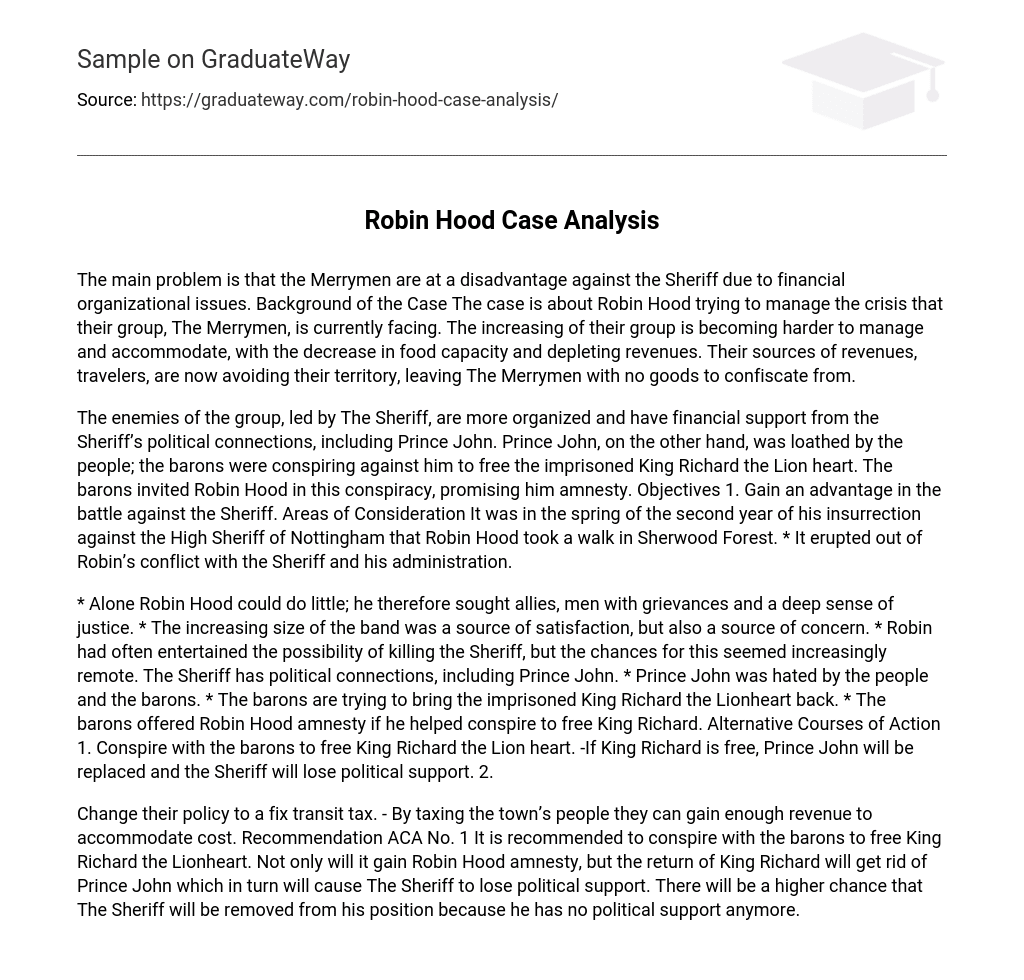The main issue is that the Merrymen are facing financial and organizational problems, which put them at a disadvantage against the Sheriff. The case revolves around Robin Hood’s attempts to handle the crisis within their group. They are finding it increasingly difficult to manage and accommodate their growing numbers, while also dealing with a decrease in food capacity and diminishing revenues. Travelers, their source of income, are now avoiding their area, resulting in a lack of confiscated goods for the Merrymen.
The group’s enemies, led by The Sheriff, are more organized and receive financial support through the Sheriff’s political connections, which include Prince John. However, Prince John was disliked by the people and the barons were conspiring against him in order to free King Richard the Lionheart who was imprisoned. Robin Hood was invited to join this conspiracy by the barons, who promised him amnesty. The main objective is to gain an advantage in the battle against the Sheriff. This conflict with the Sheriff and his administration led Robin Hood to take a walk in Sherwood Forest during the spring of the second year of his rebellion against the High Sheriff of Nottingham.*
Robin Hood, seeking allies who shared his sense of justice, recruited men with grievances to join his band. While the increasing size of the band brought satisfaction, it also raised concerns. Robin had often contemplated killing the Sheriff, but realized that this was becoming less likely as the Sheriff had powerful political connections, including Prince John. Prince John was despised by both the people and the barons, who were working to bring back the imprisoned King Richard the Lionheart. The barons extended an offer of amnesty to Robin Hood if he aided in the conspiracy to free King Richard. Potential courses of action include: 1) conspiring with the barons to free King Richard in order to replace Prince John and weaken the Sheriff’s political support, and 2)
Change their policy to a fixed transit tax. By taxing the town’s people, they can generate enough revenue to cover the costs. Recommendation ACA No. 1 – It is advised to collaborate with the barons in order to secure the release of King Richard the Lionheart. Not only will this result in granting amnesty to Robin Hood, but also the restoration of King Richard’s rule will eliminate Prince John from power, subsequently causing The Sheriff to lose his political backing. Consequentially, there will be a greater likelihood of The Sheriff being ousted from his position due to the absence of political support.





